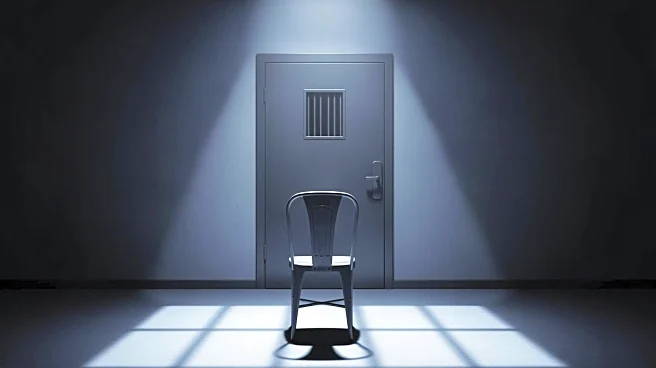What's Happening?
The IndieChina Film Festival in New York City was canceled after its organizer, Zhu Rikun, reported harassment of filmmakers by Chinese authorities. The festival aimed to showcase independent Chinese films but was suspended two days before its scheduled
start on November 8. Zhu received messages indicating that filmmakers and their families were pressured to withdraw from the event. Despite the cancellation, Zhu has been visiting the venue to protest and discuss films with other filmmakers. Zhu, who has a history of organizing independent film festivals in China, faced similar challenges there, leading to the shutdown of his Beijing Independent Film Festival. Human Rights Watch has noted increased crackdowns on independent film festivals in China since President Xi Jinping took office in 2012.
Why It's Important?
The cancellation of the IndieChina Film Festival highlights the reach of Chinese governmental influence beyond its borders, affecting cultural events in the U.S. This incident underscores the challenges faced by independent filmmakers in China and abroad, as they navigate censorship and political pressure. The situation raises concerns about freedom of expression and the ability of artists to showcase their work without interference. It also reflects broader geopolitical tensions, as the Chinese government seeks to control narratives about its country globally. The event's suspension may deter future cultural exchanges and collaborations between U.S. and Chinese filmmakers, impacting the diversity of film offerings and international dialogue.
What's Next?
Zhu's protest at the venue suggests ongoing resistance to censorship and pressure, potentially inspiring other filmmakers to stand against similar challenges. The incident may prompt discussions among U.S. cultural institutions and policymakers about safeguarding artistic freedom and supporting independent voices. Human Rights Watch and other organizations may continue to monitor and report on transnational repression by the Chinese government, advocating for international support for affected filmmakers. The situation could lead to increased scrutiny of China's influence on global cultural events, prompting diplomatic responses or policy changes to protect artistic expression.
Beyond the Headlines
The cancellation of the festival raises ethical questions about the role of governments in cultural censorship and the responsibility of host countries to protect foreign artists from political pressure. It also highlights the cultural impact of geopolitical conflicts, as artistic expression becomes a battleground for ideological control. The incident may contribute to a growing awareness of the importance of cultural diplomacy and the need for international cooperation to ensure freedom of expression. Long-term, this could influence how film festivals and other cultural events are organized, with increased emphasis on safeguarding against external interference.















